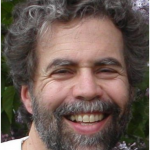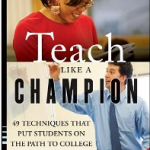 Hail, Regents! The most important task of the NYS Board of Regents is the selection of the NYS Education Commissioner. It is hard to imagine that they could have done better than David Steiner (see GothamSchools.org profile) .
Hail, Regents! The most important task of the NYS Board of Regents is the selection of the NYS Education Commissioner. It is hard to imagine that they could have done better than David Steiner (see GothamSchools.org profile) .
Keynote at CGR’s teacher preparation symposium last week, Commissioner Steiner just kept talking sense all morning. From his formal address to each question response, he was ever gracious but direct, balanced and uncompromising.
Picking Steiner was certainly controversial. While a professor at Boston University in 2003, he authored a study of 16 teacher education programs across the nation that criticized them as ideologically driven and lacking rigor, a finding that hardly endeared him to the education elite. A pragmatist, one of the facts that he found disturbing was the lack of emphasis on skill development, noting that only 3 of the schools used video or audio tape to train teachers. As Dean of Hunter College’s School of Education, he put these lessons to work in Hunter’s program. He also teamed up with three successful charter school operators, Teach for America and the NYC Department of Education to form Teacher U, a new approach to teacher training emphasizing teaching as a craft, not an academic discipline. Steiner reinforced that view last week, noting that schools of education are organized more like liberal arts programs than as professional schools. With his charter school partners, Steiner emphasizes that teaching is a skill that can be taught and must be practiced.
 But don’t get the idea that Steiner thinks that P-12 education itself should focus on “learning how to learn” as opposed to learning a specific body of knowledge. Invited by one participant to affirm the need for an emphasis on “metacognitive skills” like “critical thinking” and other tools of personal inquiry, Steiner gently pushed back. In Steiner’s view, one learns critical thinking by being forced to think critically about something—English literature, or biology or mathematics. These skills aren’t learned in a vacuum, rather through the process of acquiring knowledge, through exercising “mind muscle memory.” Incidentally, Steiner is effortlessly bilingual—he speaks English most of the time, but slips into eduspeak as needed.
But don’t get the idea that Steiner thinks that P-12 education itself should focus on “learning how to learn” as opposed to learning a specific body of knowledge. Invited by one participant to affirm the need for an emphasis on “metacognitive skills” like “critical thinking” and other tools of personal inquiry, Steiner gently pushed back. In Steiner’s view, one learns critical thinking by being forced to think critically about something—English literature, or biology or mathematics. These skills aren’t learned in a vacuum, rather through the process of acquiring knowledge, through exercising “mind muscle memory.” Incidentally, Steiner is effortlessly bilingual—he speaks English most of the time, but slips into eduspeak as needed.
Steiner came down squarely in favor establishing a statewide curriculum, a tangible statement about what our children should learn. Along with Regent Wade Norwood, also a participant in the conference, Steiner promised that the State Education Department would focus new energy on a core curriculum that is matched to rigorous assessment. In Steiner’s words, State Ed will “develop clear, content-rich, sequenced curriculum guides that will form the foundation for a new generation of assessments – assessments that will be redesigned to generate truly useful data for students, teachers, principals and parents .” At present, the state’s curriculum is defined by the state’s tests, tests that are too predictable and insufficiently comprehensive.
Both sides of the standardized test controversy got half a loaf from the Commissioner. He endorsed the continued use of tests for basic skills—in fact, it was Steiner who put an end to the practice of lowering “cut scores” on the state’s tests, which made it appear that student performance was rising when it wasn’t. But he also urges the development of assessments that offer students “not only feedback on their ability to master the crucial foundational knowledge and skills, but also to demonstrate, through performance-based assessments, the higher-order critical thinking skills they will need for success in higher education and the world of work.” Simplistic assessments lead to simplistic thinking, an unhealthy focus on “the” answer instead of a deep interaction with the subject matter.
 With his Teacher U experience to draw upon, Steiner is the perfect Commissioner to bring the lessons of charter schools to our worst-performing public schools. CGR’s symposium also included Doug Lemov, one of the founders of Uncommon Schools (operator of the stellar Rochester Prep Charter school) and author of bestseller Teach Like a Champion. On Amazon.com’s “100 topsellers” list since its release seven months ago, Lemov’s book focused on the simple techniques of outstanding teachers. Last Tuesday, 300 teachers came to Wilson Magnet High School to listen to Lemov discuss the craft of teaching and hear him narrate videos of master teachers at work.
With his Teacher U experience to draw upon, Steiner is the perfect Commissioner to bring the lessons of charter schools to our worst-performing public schools. CGR’s symposium also included Doug Lemov, one of the founders of Uncommon Schools (operator of the stellar Rochester Prep Charter school) and author of bestseller Teach Like a Champion. On Amazon.com’s “100 topsellers” list since its release seven months ago, Lemov’s book focused on the simple techniques of outstanding teachers. Last Tuesday, 300 teachers came to Wilson Magnet High School to listen to Lemov discuss the craft of teaching and hear him narrate videos of master teachers at work.
Charter schools have never been intended to replace traditional public schools, although something approaching this is being attempted in New Orleans. Instead, many believe that charters should be laboratories for different approaches to instruction, different organizational models for teaching and learning. And they have fulfilled their promise—while student achievement doesn’t magically improve simply because a school is organized as a charter, the pressure to innovate and the willingness of tough charter regulators to close poor-performing schools has allowed exemplars to emerge. KIPP, Uncommon Schools, Promise Schools, Success Academies, and others have demonstrated their ability to establish and maintain high performing schools against a backdrop of poverty. Steiner’s work at Teacher U is aimed at bringing those lessons to teacher education.
Rochester Schools Superintendent Jean-Claude Brizard has embraced charter schools as an opportunity, not a threat. He recently negotiated a “Charter Compact” that brings the Board of Education, each of the charter operators, and the Rochester Teachers Association together in a partnership aimed at improving student outcomes for all of Rochester’s children.
Education remains our best anti-poverty program—and our most effective policy for reducing violence, fighting crime, and achieving a competitive economy. Improving our dysfunctional educational system will take courage, leadership and political acumen. While many difficult and controversial decisions lie ahead, we can be encouraged by the players now on stage—from Arne Duncan (with the support of the President), David Steiner (with support of Meryl Tisch and Wade Norwood at the Regents), and Jean-Claude Brizard (with the support of reformers on the Board of Education) to charter innovators like Doug Lemov. They seem to be singing from the same hymnal (if not always the same page). Let’s both encourage them and hold them accountable—great ideas and good plans are only the first step.
Kent Gardner, Ph.D. President & Chief Economist
Published in the Rochester (NY) Business Journal October 8, 2010

